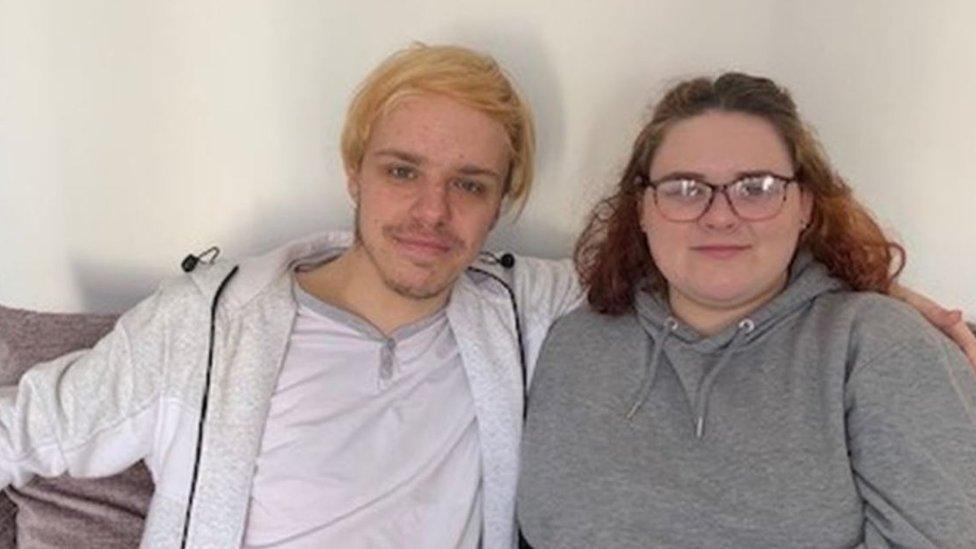I saved my friend's life in the morning and went back to work in the afternoon
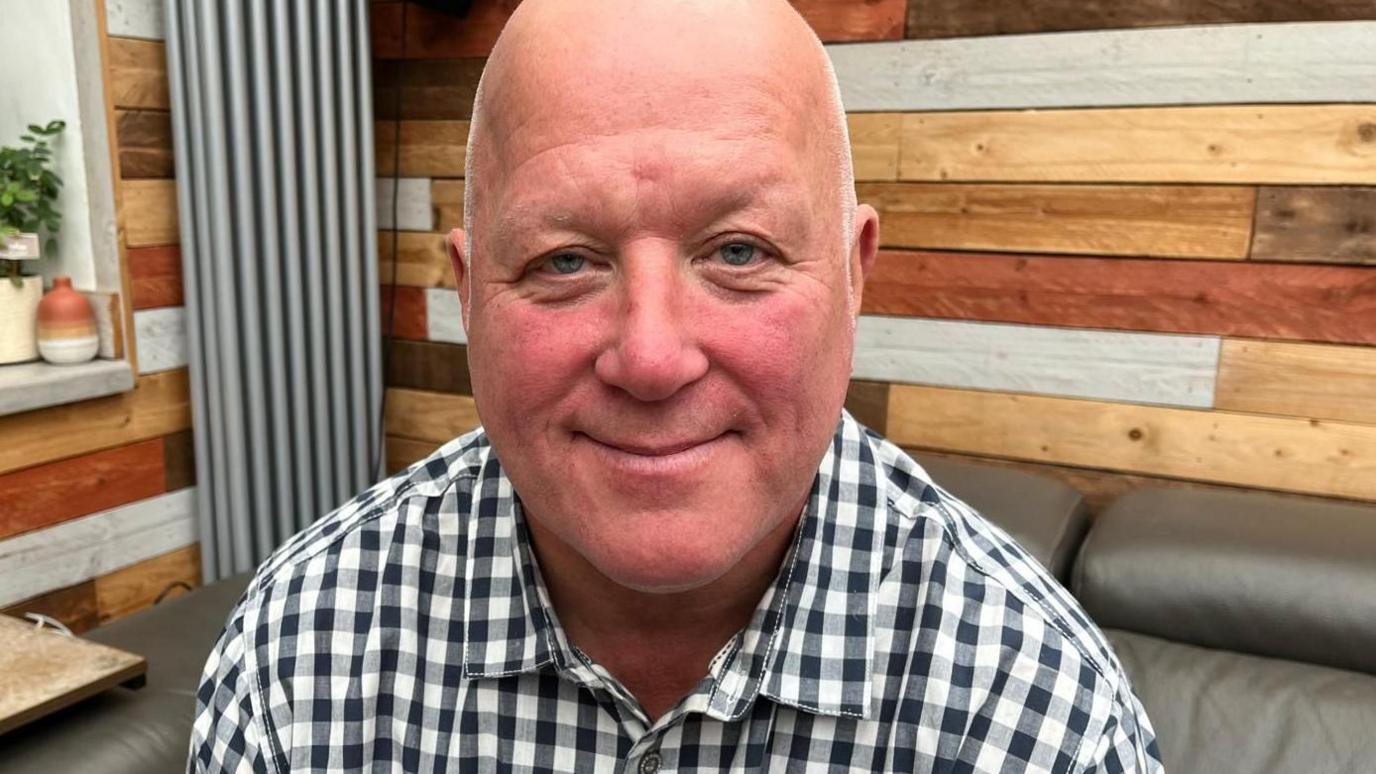
Jason Redrup has needed to use CPR on four separate occasions, although it's a skill most people are told they are unlikely to ever use
- Published
It is a skill we learn but hope never to use, yet Jason Redrup has performed CPR four times.
Twice on strangers in his role as a police officer, for his father-in-law 20 years ago, and more recently on a close friend.
On the first three occasions his interventions were sadly not enough to change the outcome, although given the survival rate for out-of-hospital cardiac arrests in Wales is just one in 20, arguably the odds were always stacked against him.
But on his fourth attempt he saved the life of his friend, former Cardiff Rugby player Nick Williams, and it was all the more remarkable given the circumstances.
"It was a day of stars aligning, because I should have been in work," said Jason.
Instead he was home after a doctor's appointment and it was only by chance that he spotted a pair of feet on the ground in his back garden.
"I thought someone had come to break into the house," he laughed. He soon realised it was Nick Williams.
The 38-year-old had called round to get a passport photo signed and had dropped in via the garden, but collapsed after suffering a cardiac arrest.
"I'm a retired police officer," said Jason, 55, from Barry, Vale of Glamorgan. "So I did CPR training annually and you almost go into auto mode - checking for a pulse and breathing."
Call for defibrillator in every Welsh school
- Published28 June 2024
Driver survives cardiac arrest on dual carriageway
- Published19 August 2024
'CPR from my partner saved my life after cardiac arrest'
- Published13 February
He performed CPR - or cardiopulmonary resuscitation, external - for about 10 minutes, with his mobile propped on Nick's chest, speaking to the 999 operator as he waited for ambulance crews to arrive.
"By the time everyone arrived - the fast response car, ambulance and air ambulance - there were about nine people in the garden and there was a lot of equipment and debris afterwards."
He described the surreal moments after Nick was whisked away by air ambulance where he was left clearing up the mess, then simply returned to work.
"I guess I'm not a great example, having previously been a police officer I've dealt with lots of different types of trauma. But when I phoned my wife and told her what happened, you could almost hear the phone drop at her end.
"It takes a while to process it and in the evening I probably realised what had happened."
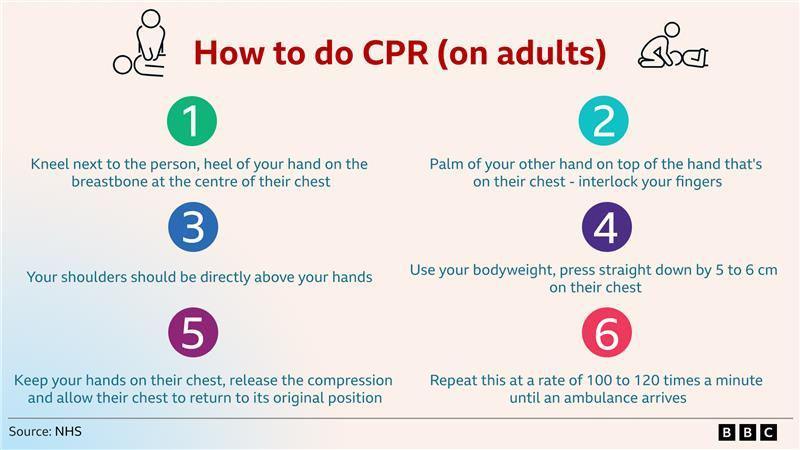
Asked if he had any doubts about attempting CPR, having been through it three times before, he was clear.
"If you don't try, there's no chance of success.
"If someone's heart is not beating and you can't get it beating again, what harm can you do? If you're doing it right then you're probably going to break some ribs, but I think they'd probably thank you for that if they carried on living."
He acknowledged it was a traumatic experience for anyone, but added: "I also think doing nothing would be more traumatic - the fact you didn't or couldn't help. To think 'I tried' is a better way of dealing with the trauma."
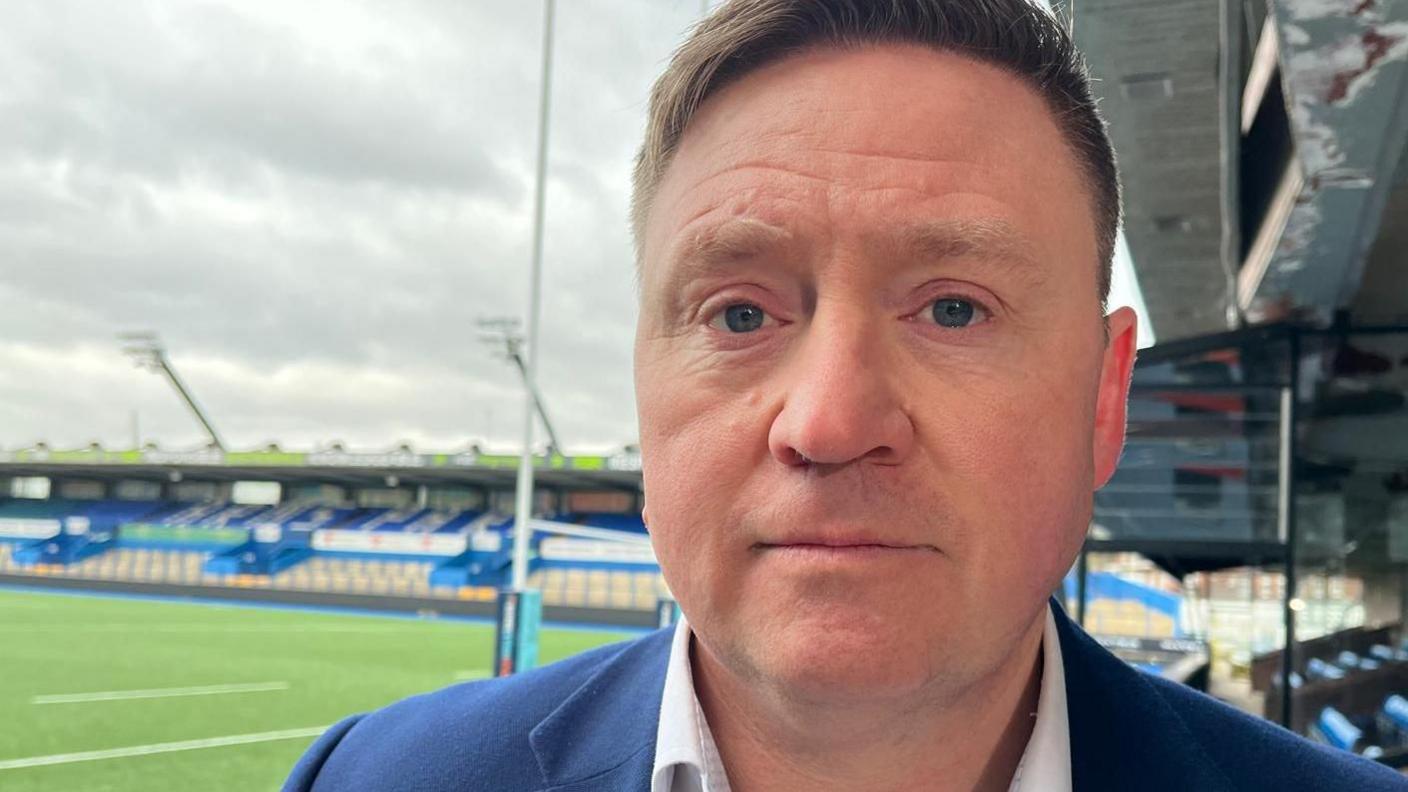
Rhodri Thomas, head of British Heart Foundation Cymru, said outcomes in Wales for out-of-hospital cardiac arrests are worse than elsewhere in the UK
It is why British Heart Foundation Cymru is encouraging more people to sign up to a 15-minute "RevivR" course online, so more people will have the skills required.
"There are around 2,800 cardiac arrests in Wales: sadly only one in 20 of those survive in Wales, but elsewhere it's one in 10," said charity head Rhodri Thomas.
"We're not sure why that is, some of it is because of learning in school, but a recent study showed people are hesitant and lack confidence in CPR - but doing something is better than doing nothing.
"Eight out of 10 cardiac arrests happen in the home, so the chances are if you learn that skill it will be performed on a loved one."
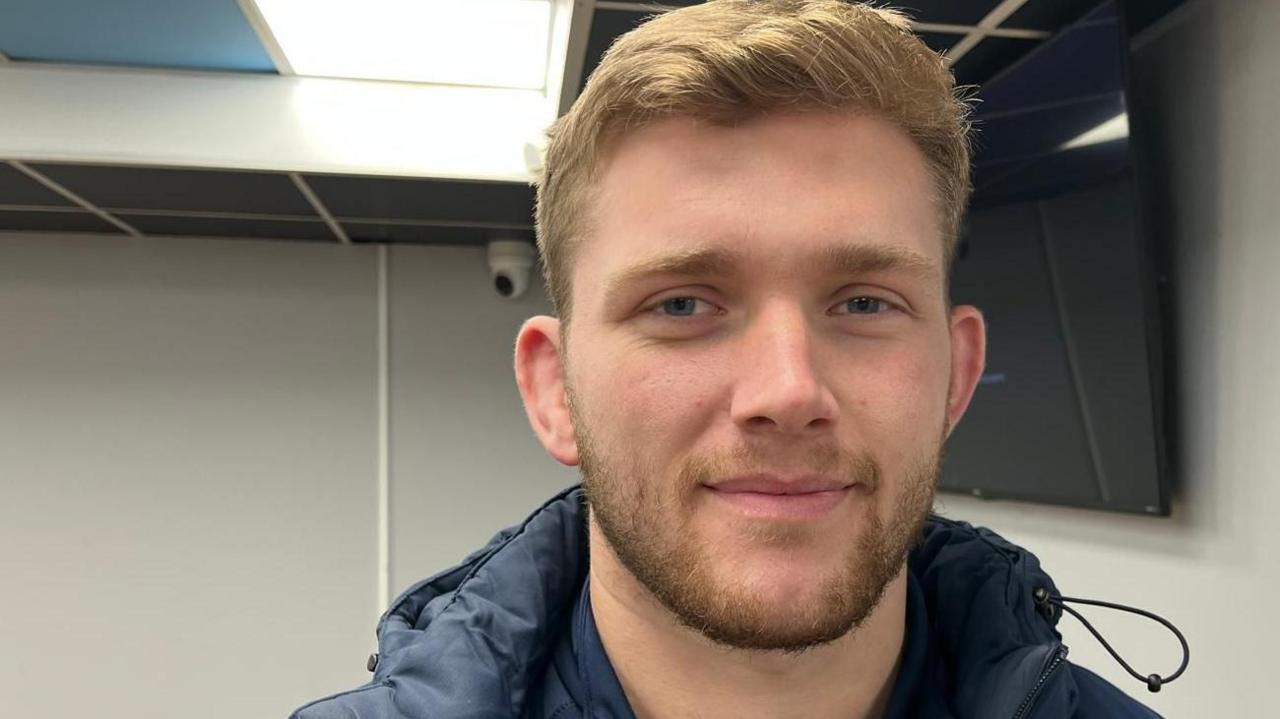
Will Davies-King says his family used CPR when his mother suffered a fatal cardiac event three years ago, and felt more people should have the skills
The charity has worked with Cardiff Rugby - where Nick was employed at the time of his cardiac arrest - to help raise awareness of the simple ways to pick up the skills.
"It's personal to me because I lost my mother to a cardiac episode in November 2021," said tight-head prop Will Davies-King.
"You never expect it to happen to you. I wasn't there, luckily, but my little brother and stepfather were there and managed to find her soon after she had the episode.
"People tried to help but it was a pretty remote area - the air ambulance came, but there wasn't much people could do at that stage."
He explained his stepfather was talked through CPR by 999 call handlers and it was a difficult, traumatic thing for those present to come to terms with afterwards.
But he added his family all feel CPR skills are vital.
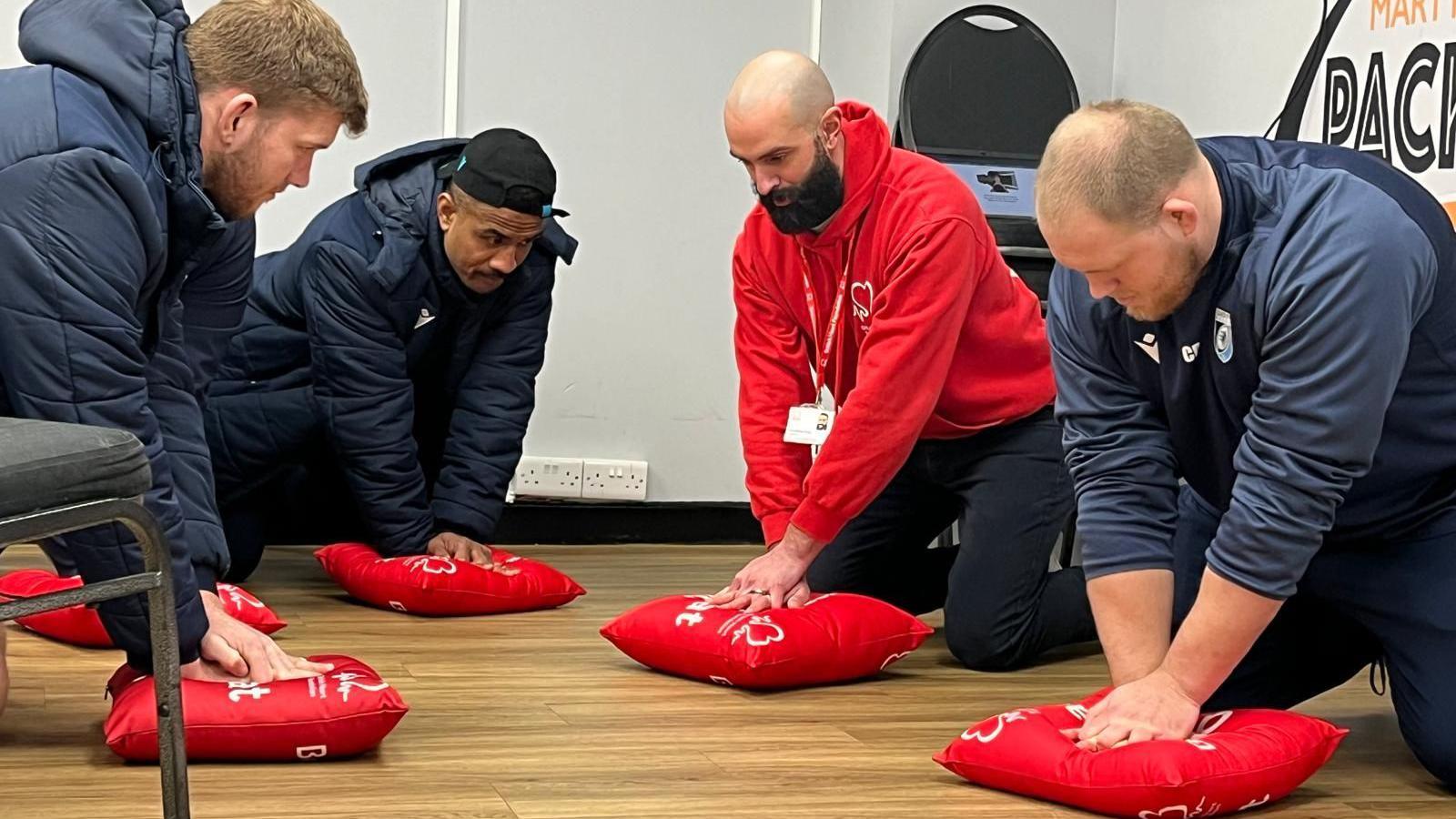
Cardiff Rugby players - some of whom played alongside Nick Williams - are being shown CPR skills with British Heart Foundation Cymru
As loose-head prop, Corey Domachowski played alongside Nick Williams, who has since moved away from Wales.
"It's really frightening and puts things in perspective," he said of his former teammate's cardiac arrest.
"Things like CPR and having defibs at hand are really important, even in a professional rugby environment where most people are really fit and healthy - it can happen to anyone.
"It's a high pressured moment, I'd imagine. I've never been in the position to have to react to that and hopefully never will do, but I think it's important for everyone to know CPR and hopefully save people's lives."
Related topics
- Published24 March 2024
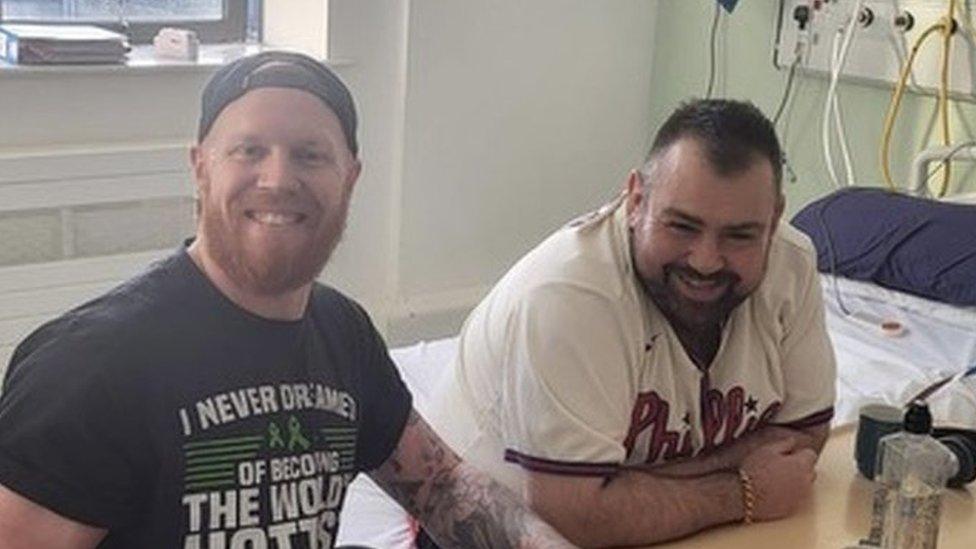
- Published8 December 2020
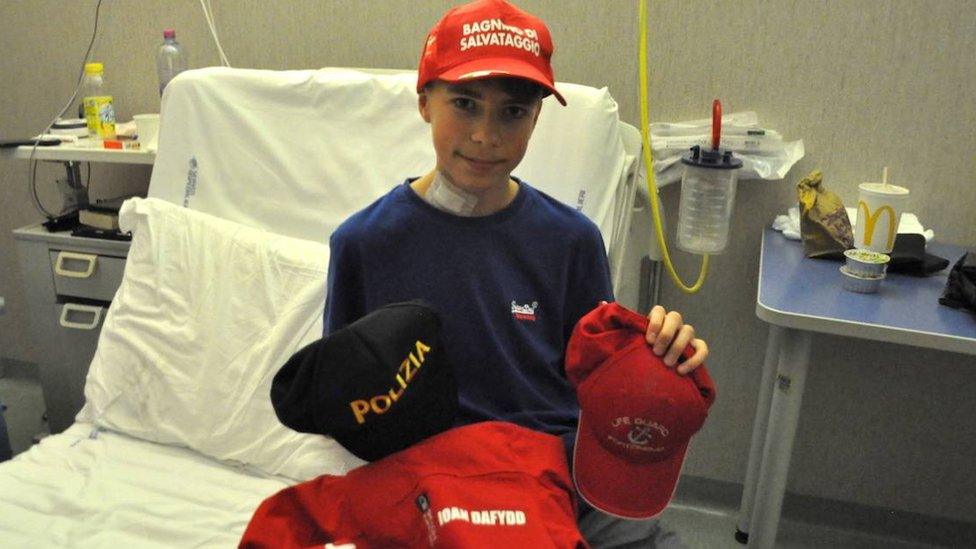
- Published28 February 2021
